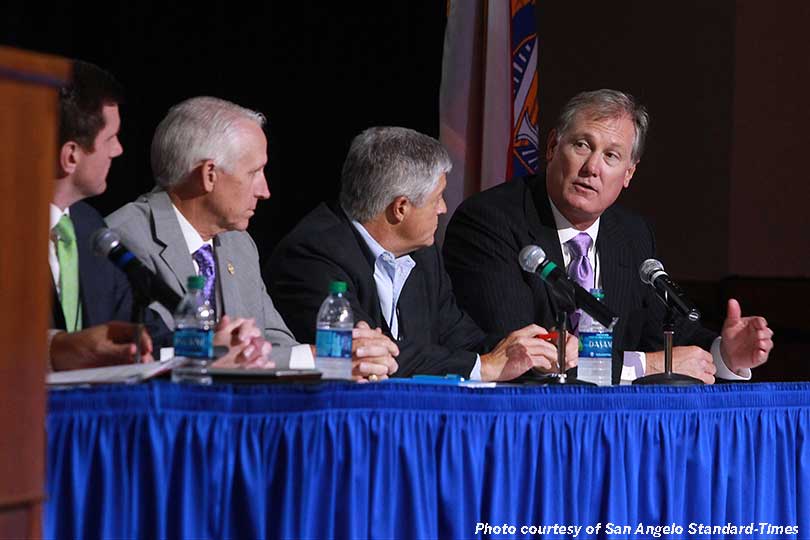By Shala Watson
Staff Writer
Dozens of state representatives, senators, county officials, school board members and educational professionals, along with U.S. Congressman Mike Conaway, recently gathered in San Angelo for the 13th West Texas Legislative Summit (WTLS).
The event provided the opportunity for elected officials to discuss how to address important issues in the upcoming legislative session. The focus of this year’s summit was ensuring pathways for success in education and meeting the needs of the workforce.
The agenda had panel discussions describing legislation, including House Bill 5 (HB 5) and educational funding.
HB 5, which was passed in 2013, will have the most impact on students who will graduate high school next year. The bill changes graduation requirements from “recommended” and “distinguished” with an emphasis on college preparation to a more career and technical education-friendly program. This change will help develop a more skilled workforce and give more opportunities to students who choose not to attend a four-year college or university.
Dual credit was also a topic discussed during the summit, according to Texas Farm Bureau State Director Val Stephens.
Dual credit enrollments have increased by 650 percent since 2000, according to the Texas Education Board.
Some students are graduating high school with an associate’s degree.
“They gave examples of students who had graduated from smaller schools that had 25-60 hours of college credit when they graduate and how much that benefited the families expense-wise,” Stephens said.
Students taking advantage of dual credit courses can save significant time and money.
“It’s really become a part of the culture in higher education to get students through quickly and with the least amount of debt possible,” said Dr. Brian May, president, Angelo State University. “Dual credit serves both of those purposes.”
May also noted that rural students should be given equal educational opportunities as those students in larger metropolitan areas.
Texas Tech University Chancellor Robert Duncan highlighted the need for the vet school in Amarillo to meet the rural vet shortages across the state. He also discussed the need for a dental school in El Paso.
“Texas Farm Bureau will benefit from this summit by staying informed and ahead on the issues that will be a high priority in the next legislative session,” Stephens said.

